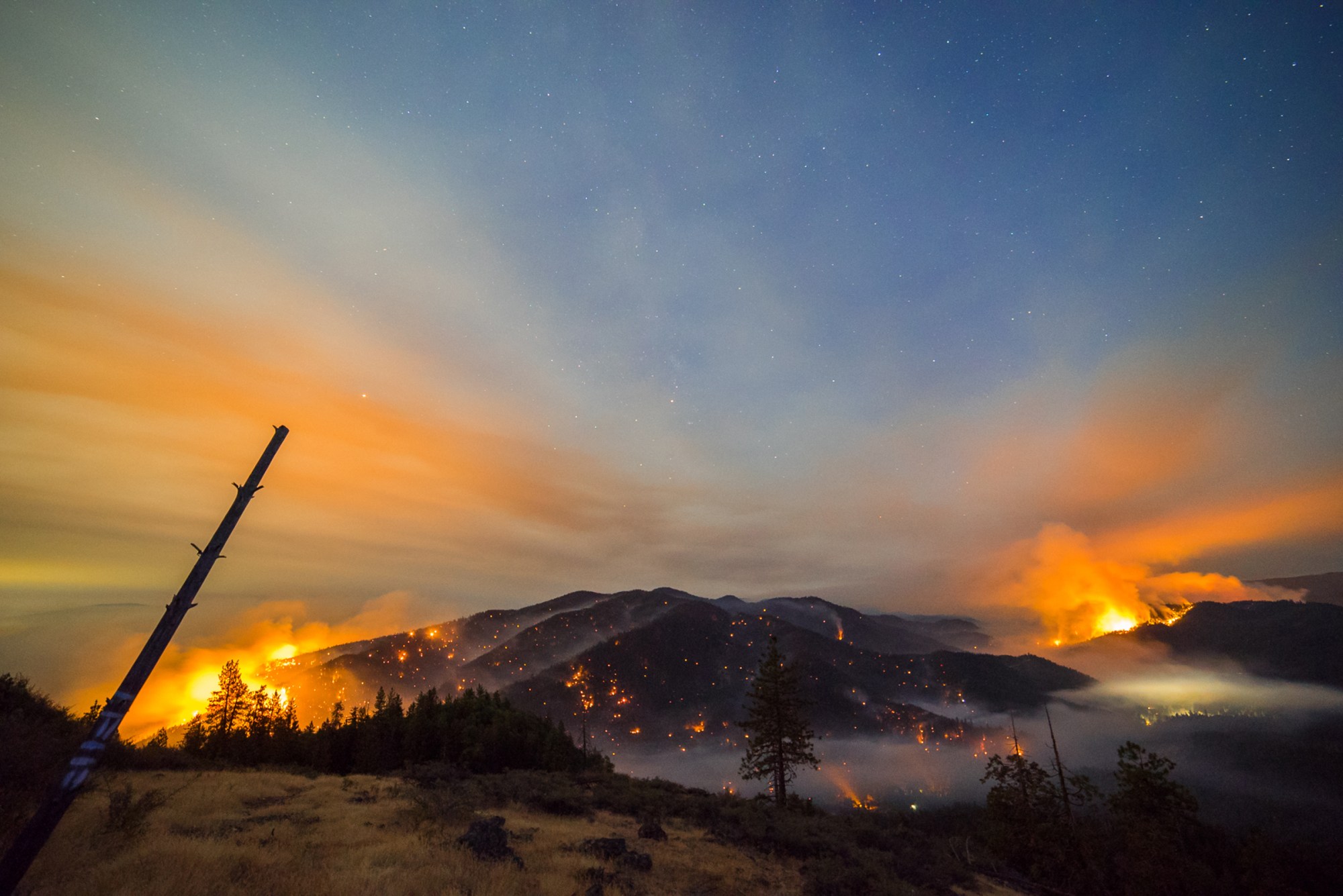
- Film
Docs: “Elemental: Reimagine Wildfire” – a Journey to Understand Wildfire
Elemental: Reimagine Wildfire takes viewers on a journey with the top experts from across the nation to better understand wildfire. The film begins with the harrowing escape from Paradise, California on November 8, 2018, after the town ignited from wind-driven embers and burned within a few hours of the fire’s start- and continues on to revisit more recent record-shattering fires. Narrated by actor David Oyelowo (The Butler), it includes interviews with the top forest and climate experts as it challenges conventional wisdom about the best choices that can be made to save our homes and communities during major fires. Director Trip Jennings – whose work with National Geographic for over a decade has won dozens of awards – spoke to us via Zoom from his Oregon home to explain why his documentary is surprisingly optimistic about the future of our planet.
How did this film come about?
This film came about after, really, the first time in recent memory there was a big, fast-moving fire so close to my home in Oregon, Portland that there were ashes blowing into town. I’d made a student film about fire 15 years prior, and I knew a little bit about fire and while I’m no expert, I could see there was a big disconnect between the science and the conversation that’s happening around other people and politicians.
What were you trying to tell your audience?
I thought the film would be about following native American people putting fire on the ground and about prescribed burns and the good that fire does. But when I started filming, a scientist told me that when it comes to protecting homes and communities, anything that happens more than one hundred feet from the structure you want to protect doesn’t really have much effect on whether or not it survives. I thought that guy was definitely wrong and spent basically five years diving into this subject and learning how right he was.
What did you learn?
We live in a world that’s getting hotter and drier and the fire hazard is growing. We have an opportunity right now to put our resources towards doing things that actually protect our communities. If we don’t do those things by 2050, we are going to see even more catastrophic losses. The more homes that are lost, the more forests we have to cut down to rebuild them, the more carbon is lost to the atmosphere in that process, the hotter the world gets, the more likely homes are to burn in fires.
How difficult was it to hear the survivor stories?
We started making the film in 2017, just after the Tubbs fires in Santa Rosa, and heard harrowing stories. Then we heard way worse stories in Paradise and then later in Oregon again. It is the same playbook over and over. Big east winds blow fires towards communities. It’s hot, dry and there are not a lot of roads out. People died in their cars in Paradise (85 people perished during that fire and 14,000 homes were lost. We heard about people whose tires popped from the heat and they had to get out of the car and run through fire. We interviewed a nurse who used his personal car to try and escape the fires with two critical care patients on battery-operated life support and he thought he was going to lose them both (they miraculously survived). I’m grateful they trusted me enough to share these stories.
Are you at all hopeful the planet can turn things around?
The thing that surprises me right now is that I’m actually really optimistic about this part of the problem being solved. I don’t think you end a lot of films about climate change on a positive note, but this is a unique issue where we really can come together because losing your homes or narrowly escaping with your life is not a partisan issue. We have all of the technology; we have all of the research to show us how to move in a different direction quickly but we’re choosing not to do it. I just hope people take away from this film that to change things, we have to look at trees as our biggest asset and not think about them as our biggest liability or enemy.
How did you get David Oyelowo to narrate the film?
I just love his work and his voice. The first time that we heard him say ‘wildfire’ when we were in the studio, I just got chills up my spine and knew we chose the right narrator. He lives in Los Angeles and had seen smoke columns from his own backyard there, moving toward and away from his home. When we reached him, he was doing renovations and he told us that after watching some of the film, he changed his whole construction plan because he wanted to prioritize protecting his home.
The film is released theatrically on April 7, to coincide with Earth Month.

